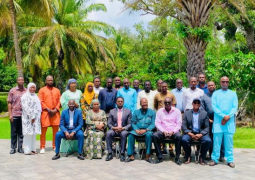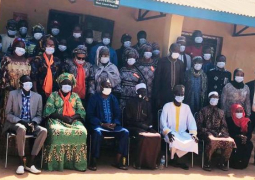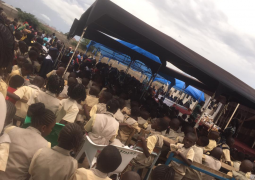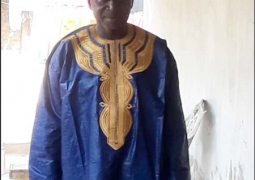The region scored 32 out of 100 marks whilst Europe and the European Union more than doubled the former’s core, with a staggering 66 out of 100.
The 2022 CPI analyses the connection between conflict, security and corruption, taking an in-depth look at how violence and corruption impact one another around the world.
The report outlines that governments across the region have limited information and cracked down on independent voices calling out abuses of power to keep corruption out of the public eye.
This year’s CPI results underline how intertwined paths of democracy, security and development in sub-Saharan Africa are eroded by corruption, particularly during a time of global crises. The region struggles to recover from the COVID-19 pandemic and an increased cost of living.
Transparency International describes it as another year of stagnation on the Corruption Perceptions Index (CPI) for sub-Saharan Africa.
“This reinforces the urgent need for African governments to implement existing anticorruption commitments if they are to alleviate the devastating effect of corruption on millions of citizens living in extreme poverty,” the report states.
“Forty-four of the 49 countries assessed still score below 50. Gains made by a few countries are outweighed by significant declines in others,” it adds.
Seychelles continues to lead the region with a score of 70, followed by Botswana and Cabo Verde, each with 60. Burundi (17), Equatorial Guinea (17), South Sudan (13) and Somalia (12) perform the lowest.
Conflict and security challenges, according to the think tank’s report, have further weakened institutions and undermined states’ capacity to decisively respond to corruption. “This has also meant little to no action in preventing capital flight estimated to be in tens of billions of dollars each year from the region,” it states.
“Independent checks on power continued to take a hit too. Opposition figures or activists have been intimidated, smeared or arrested – at times under the pretence of anti-corruption crackdowns and enabled by heavily politicised judicial systems,” the report states.
“The pandemic has affected the livelihoods of people, deepened inequalities and increased graft risks across the region. It is no surprise that corruption was a core issue in many of the elections in 2022. Integrity of the vote itself also remained a concern.”
In Kenya (32), the election highlighted the urgent need for public scrutiny of political financing. The same issue will be in the spotlight during 2023 elections in Nigeria (24) and Ghana (43) in 2024.
Somalia (12) is at the bottom of the CPI, and continually ranks as one of the least peaceful countries in the world. For three decades, violence and instability have decimated the country, leaving many Somalis in dire humanitarian conditions.
According to the organisation, corruption is rampant, yet public officials continue to ignore the problem, as newly elected President Hassan Sheikh Mohamud dissolved two key anticorruption bodies in October.
“In authoritarian contexts where control rests with a few, social movements are the last remaining checks on power. It is the collective power held by ordinary people from all walks of life that will ultimately deliver accountability,” Delia Ferreira Rubio, chair of Transparency International, is quoted as saying on the organisation’s website.





